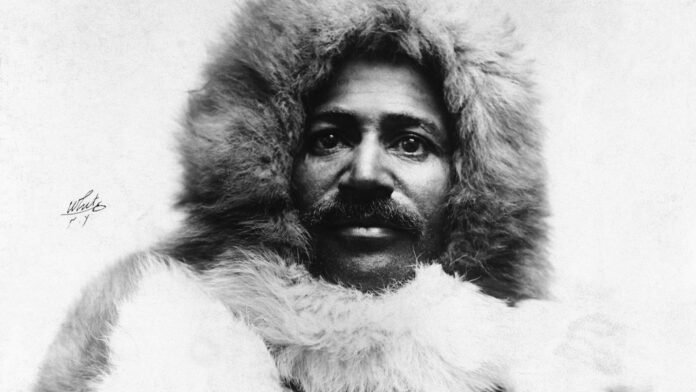In 1909 African American Matthew Henson trekked with explorer Robert Peary, reaching what they claimed was the North Pole. Who got there first?
When Commander Robert Peary’s expedition camped on April 6, 1909, uncertainty loomed over whether they had truly reached the North Pole. Amidst the challenges of Arctic exploration, one figure stood out, yet remained overlooked for decades in the annals of history: Matthew Alexander Henson, a Black explorer from Baltimore.
Fatigued from traversing the polar ice cap, Peary’s team encountered a perilous moment when he fell into icy waters. It was Henson, alongside four Inuit companions, who rescued him and propelled the team forward, eventually reaching what they believed to be their destination.
Peary’s account, initially hailed as the first documented North Pole conquest, has faced scrutiny over the years. Despite Peary’s claims, it’s speculated that Henson may have been the first to set foot at the Pole. This discrepancy, coupled with the prevailing biases of the era, overshadowed Henson’s significant role.
Born in 1866 to freeborn sharecroppers, Henson’s journey to the Arctic began when he met Commander Peary in Washington, D.C. Their partnership flourished as they embarked on expeditions, facing adversities and triumphs together.
The dispute over North Pole claims strained the bond between Peary and Henson. Despite their shared achievements, Peary’s reluctance to acknowledge Henson’s contributions led to estrangement.
Henson’s expertise, linguistic skills, and rapport with the Inuit were invaluable to the team’s success. Revered as “Matthew the Kind One” among the Inuit, Henson’s understanding of Arctic survival techniques was instrumental.
While the debate over who reached the North Pole first persists, one fact remains indisputable: Henson’s indispensable role in the expedition. As Peary himself acknowledged, their journey wouldn’t have been possible without Henson.
Matthew Henson’s story serves as a poignant reminder of the often overlooked contributions of marginalized individuals in the annals of exploration. His legacy endures as a testament to resilience, perseverance, and the pursuit of adventure against all odds.

